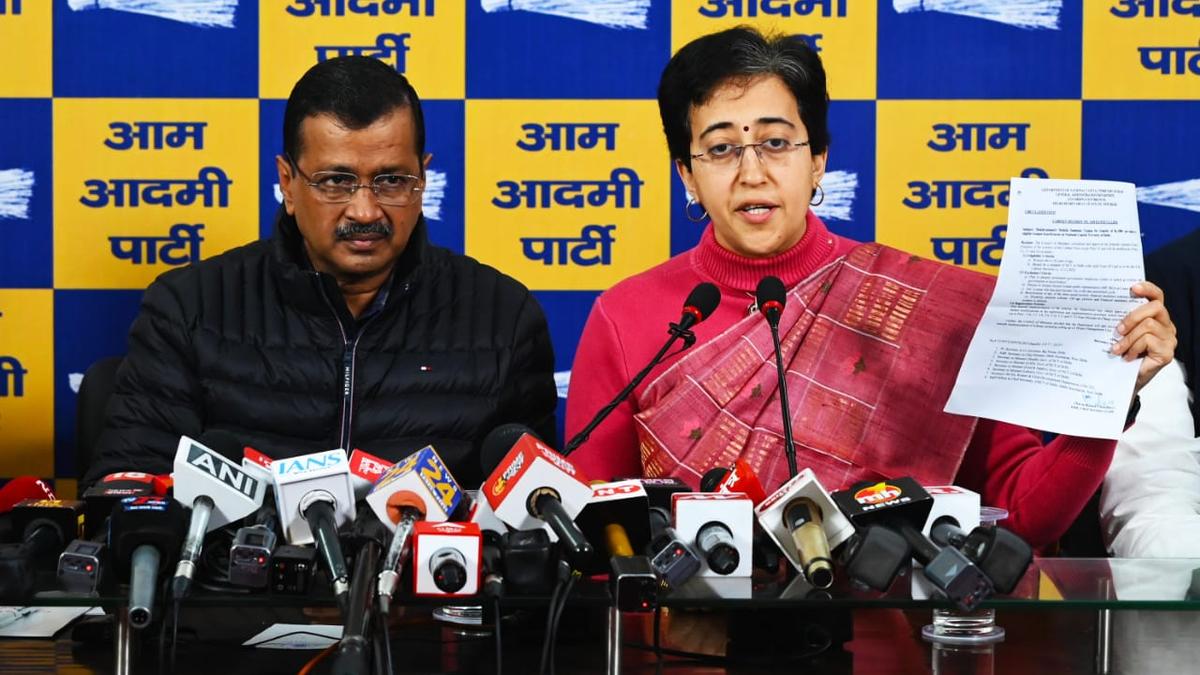 |
|
The political landscape in Delhi is currently embroiled in a heated controversy surrounding the Aam Aadmi Party's (AAP) recently announced social welfare schemes. Days after AAP leaders launched a high-profile registration drive for the Mukhya Mantri Mahila Samman Yojana (providing ₹2100 to women) and the Sanjeevani Yojana (free treatment for the elderly), the Delhi government's Women and Child Development and Health departments issued public notices distancing themselves from these initiatives. This dramatic divergence has ignited a fresh row ahead of the upcoming Assembly elections, exposing deep fissures within the Delhi government and sparking accusations of political maneuvering.
The notices issued by the concerned departments serve as a stark warning to the public. They explicitly caution citizens against sharing personal information with individuals or political parties collecting data under the guise of these schemes, emphasizing that such actions are fraudulent and unauthorized. The notices highlight the critical risk of identity theft, cyber fraud, and banking scams associated with providing sensitive details like PAN numbers, phone numbers, and voter IDs. The government's clear denouncement underscores the seriousness of the situation and the potential dangers faced by unsuspecting citizens. The notices further stress the absence of any official digital portal for registration, emphasizing that any physical forms are illegitimate.
AAP convener and Delhi Chief Minister Arvind Kejriwal responded to the government's denials with strong accusations against the Bharatiya Janata Party (BJP). He vehemently claimed that the BJP, feeling threatened by the popularity of the schemes, orchestrated the move to discredit the AAP and potentially even arrest Chief Minister Atishi in a fabricated case. He alleged a plot involving raids against senior AAP leaders prior to the alleged arrest of Atishi. This fiery response escalates the conflict, transforming it into a broader political battle with significant implications for the upcoming elections. Kejriwal's assertion that the BJP is 'rattled' by the success of the schemes, aimed at winning over crucial voter demographics, paints a picture of intense political competition.
BJP MP Bansuri Swaraj's statement adds further fuel to the fire. Her claim of confirming the non-existence of the Sanjeevani Yojana with the Delhi Health Secretary directly contradicts the AAP's assertions. This conflicting information throws the legitimacy of the schemes into sharp relief, leaving voters questioning the authenticity of the promises made by the AAP. The conflicting narratives highlight the challenges of discerning truth from political posturing in the lead-up to the elections and the potential for deliberate misinformation campaigns to sway public opinion. The public's perception of the conflicting accounts could significantly affect voter turnout and choices.
The AAP's pre-election strategy of announcing and actively promoting these schemes reflects a calculated political move. The party believes that the promise of significant financial assistance and healthcare benefits will resonate strongly with voters and secure them votes. Numerous state-level elections have shown similar welfare schemes to be effective tools for securing votes, and AAP’s confidence in replicating this success seems unwavering. However, the government’s swift repudiation of these initiatives throws a considerable wrench into their plans. The timing of these actions, so close to the elections, heightens the political stakes and dramatically increases the public scrutiny of the AAP's campaign promises.
The contrast between the AAP's active promotion of the schemes and the Delhi government's disavowal creates a deeply confusing situation for voters. The lack of clarity surrounding the legality and implementation of these schemes presents significant challenges to the public's trust in the political process. The situation demands transparency and a clear explanation from all involved parties to restore faith and avoid exploitation of vulnerable citizens. The controversy raises concerns about the accuracy of information provided during election campaigns and the potential for misleading promises to sway public opinion.
This incident underscores the importance of verifying information from multiple reliable sources, particularly during election seasons. Citizens must remain vigilant in protecting their personal details from fraudulent activities and rely on official government channels for accurate information regarding government schemes. The consequences of falling prey to misleading information can be severe, highlighting the need for caution and critical evaluation of political claims. The broader implications extend beyond this specific instance, highlighting the need for greater transparency and accountability in the political arena.
